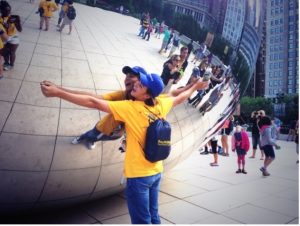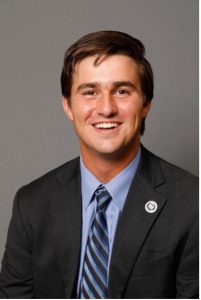An Inorganic Start
When asked why I chose to study intellectual property (IP), my most common answer is because of my unconventional wisdom.
Although this is true, it’s also a reference to my alma mater’s catch phrase, “Unconventional Wisdom.” Its true definition was a catch-all for not only describing the quirkiness of our university, but also how people used their unique experiences to solve problems and reach conclusions.
My path to IP started with the pursuit of a chemical engineering degree. That pursuit ended when I decided, in the middle of an organic chemistry midterm, that I had no chemistry with chemistry. I realized that one year prior to that exam, I was in the same room taking my favorite class, mechanical physics. I declared my mechanical engineering major at the registrar’s office and dropped organic chemistry by the time the midterm was over. Unconventional, right?
Two semesters later, I realized even though I wanted to study mechanical engineering, I didn’t want a career as an engineer. After many appointments at the Rice University Center for Career Development, I was pointed to the field of intellectual property (IP). I learned that IP would satisfy my desire to be continuously challenged and keep me in the realm of engineering without actually being an engineer. How? I was told IP can involve helping engineers patent their inventions by understanding both engineering and law.
An Outstanding Introduction to Loyola
My path to Loyola University Chicago School of Law (“Loyola”) was much more organic than my path to IP. It started in 2013 when I attended the Hugh O’Brian Youth Leadership (HOBY) World Leadership Congress (WLC) at Loyola University Chicago’s Lake Shore campus. This week-long seminar taught me about the importance of public service, social justice, and caring for others.

Fast forward six years later. I’m fresh out of college and new to Chicago. I’m settling into my job as a systems engineer at McMaster-Carr Supply Company and applying to part-time law programs in Chicago. Loyola was the first place I looked. It had the part-time law program I needed. It had the public service and social justice emphasis I wanted. I could continue learning about the same pillars I learned about six years prior at the WLC in my law school curriculum.
If I weren’t sold already, Loyola’s IP opportunities and weekend JD (WJD) program proved Loyola was the place for me. I could take courses on different topics in intellectual property while also getting the opportunity to explore how the law interacts with social justice topics in my other classes.
An Opportunity for Unconventionality
Law school is typically a three-year experience for most students. For me, it’s a four-year endeavor on top of my full-time job and other life commitments. The WJD program gave me the opportunity to study the same material that full-time students study without the need to quit my job. Nothing says fun like a full-time job and 9-12 credit hours of law school during your free time!
Even with the WJD program, I have been able to take several intellectual property courses; so far, I’ve taken Patent Law and Intellectual Property Law and next semester I’ll be taking a Patent Prosecution Seminar. My first two classes have given me the chance to learn about key IP concepts and apply them in writing memos. I’ve also been able to participate in the other IP related activities like the Intellectual Property Law Society (IPLS) and IP Bytes.
My IP classes on the weekends are especially unique because I’ve been able to learn from and collaborate with classmates that work in the patent field, which is the area I also want to practice. These conversations have helped significantly with my learning of various IP topics. My classmates and I frequently collaborate and study together to help each other understand the material better. In addition, even when I took some of my IP classes out of order, my professors worked with me to make sure that I understood the material that I would have learned in pre-requisite classes. The supportive culture Loyola has is unmatched and it has made me incredibly grateful I chose Loyola.
Lastly, the IP courses at Loyola are incredibly approachable. The IP curriculum allows you to explore various sub-sets of IP, like trademarks, copyrights, and patents, without being locked down to one track in law school. Flexibility is so important when your time in law school is so limited. Loyola helps you get the most out of your time there.
My Unconventional Wisdom
My path to law school and IP has been unconventional to say the least. Much like my process of choosing a major, choosing graduate programs was not a straightforward decision. I didn’t know if I would get into a part-time law school program. So, I also applied to Northwestern University’s Master’s of Science in Data Science program. Somehow, both schools said yes. Fast forward three years to today. I’m still working full-time as a systems engineer. I’m over halfway done with my JD. And I just received my diploma for my master’s degree.
From afar, these seemingly disparate and unique experiences could describe someone who is lost in the professional world. But that’s not me. When you combine what I’ve learned from my experiences, the best and only way I can describe it all is unconventional wisdom. And it’s my unconventional wisdom that led me to IP at Loyola.
Ashton Duke
Assistant Blogger
Loyola University Chicago School of Law, JD 2024
